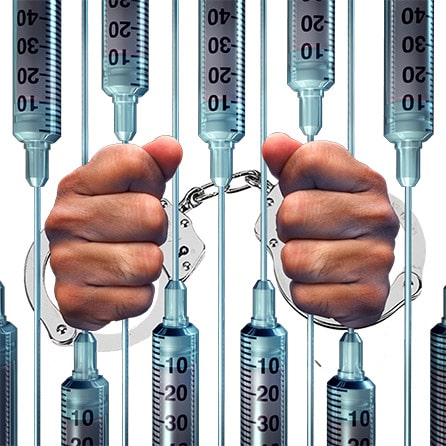A Guide to Medical Malpractice: A Medico-Legal Team Is Central to Your Case
 A patient goes to the doctor or hospital, trusting the ability of the healthcare professional in curing any ailment. Complete trust is placed upon the doctor's skills and knowledge, his specialty, and the various professional degrees suffixed to the doctor's name. Most of the time, a patient goes to a specific hospital or doctor based on their reputation. The number of healed patients, the number of successful surgeries all play a big role, the bigger the name, the higher the expectations by the patient and family members.
A patient goes to the doctor or hospital, trusting the ability of the healthcare professional in curing any ailment. Complete trust is placed upon the doctor's skills and knowledge, his specialty, and the various professional degrees suffixed to the doctor's name. Most of the time, a patient goes to a specific hospital or doctor based on their reputation. The number of healed patients, the number of successful surgeries all play a big role, the bigger the name, the higher the expectations by the patient and family members.
But what if the doctor or the hospital fails to carry out the expected duties in saving a life or properly treating an ailment?
Everybody has read the horrific tabloid stories about surgeons removing the wrong organ or, perhaps just as horrific, patients not being anesthetized properly and feeling every ounce of pain during an operation but unable to alert anyone.
According to WHO, medical negligence causes nearly 2.6 million deaths a year (WHO news release on 13 September 2019).
This number is scary high when compared to deaths related to seasonal flu (6,50,000) (WHO news release on 13 December 2017) and road accidents (1.35 million) (WHO news release on 7 February 2020). Medical Malpractice is a dainty issue most of us would rather never think about.
It is indeed a perplexing issue as medicine is far from a perfect science. In most cases, the professional will have to take a trial and error approach, eradicating one possible diagnosis at a time. The trying of alternatives until the goal is attained, be it diagnosis or treatment, is very different from improper or negligent care, despite the fine line between the two. Therefore, the official charged with investigating Medical Malpractice has to be extremely skilled.
"Medical negligence is when a healthcare professional causes a harm to a patient due to ignorance or a harm occurs unknowingly or not taking a diligent action that could have reduced the discomfort or life threating complication."
"Medical malpractice occurs when the healthcare professional is aware of the complications or potential consequences and still proceed."
 The most common examples of Medical Malpractice or Negligence
The most common examples of Medical Malpractice or Negligence
- Surgical Error
When the doctor tells the patient that they need to undergo a surgery, it brings a slight fear or discomfort for the patient. There is a common misconception that nothing can go wrong if it is a minor surgery. The truth is that regardless of the type of surgery, whether minor or major, a surgical error can occur. "Surgical Error" is an avoidable mistake during any surgery. There are different reasons why a surgical error can occur:
- Incompetency of the surgeon;
- Not following the surgical protocol;
- Too many cases to handle at one time which may drain out the surgeon;
- Overconfidence due to experience;
- Insufficient planning;
- Missing the patient's medical history or comorbidities (other diseases the patient has) that may cause a complication during the surgery.
 "Every patient is different. No matter how many years of experience a surgeon has and how many successful surgeries they have seen, it is always a trial and error approach for each patient. In any case, if negligence should take place, this can lead to physiological and psychological trauma for the patient. Every year we hear stories on how a small mistake by the surgeon costs loss of a body part or someone's life."
"Every patient is different. No matter how many years of experience a surgeon has and how many successful surgeries they have seen, it is always a trial and error approach for each patient. In any case, if negligence should take place, this can lead to physiological and psychological trauma for the patient. Every year we hear stories on how a small mistake by the surgeon costs loss of a body part or someone's life."
To read this Medical Malpractice further, please click here.
 English
English
 عربي
عربي Русский
Русский 官话
官话 português
português
 Türk
Türk 



















